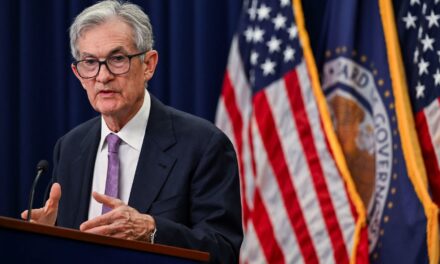We support our Publishers and Content Creators. You can view this story on their website by CLICKING HERE.

Senators are looking to prioritize legislation to address the widespread Chinese hacking of U.S. and global telecommunications networks.
Lawmakers were recently briefed on a massive hacking effort by a group called Salt Typhoon, which is said to be operated by the Chinese government. Sen. Marco Rubio (R-FL), President-elect Donald Trump’s secretary of state nominee, painted the hack as the worst cybersecurity attack in history.
“It’s the most disturbing and widespread incursion into our telecommunications systems in the history of the world, not just the country, because of how massive our telecommunications system is,” Rubio, the ranking member on the Intelligence Committee, told reporters on Wednesday. “That’s about as bad as it gets.”
After a briefing from officials in the FBI, the Federal Communications Commission, and the Cybersecurity and Infrastructure Security Agency, senators expressed outrage over the ability of the attack to take place and a lack of accountability.
“There’s no accountability in anybody sitting up there,” Sen. Rick Scott (R-FL) told reporters after the briefing. “They have not told us why they didn’t catch it, what they’ve done to prevent it.”
“If somebody came to my office and said, ‘Hey, look, something bad happened, don’t worry, I’m responsible for it, but I’m not going to be responsible for it, and I don’t have any plan to fix it,’ what would you do? You’d fire them,” he said.
The shock over the hack has led to a clamoring for legislation to secure the U.S. telecom network, with many aiming to expedite such legislation even before President Joe Biden leaves office. Senate Intelligence Committee Chairman Mark Warner (D-VA), who has a background in telecoms, said he would try to push legislation through before the end of the year.
Sen. Mike Rounds (R-SD), who will run the Senate Armed Services Committee’s cyber subcommittee in the next Congress, hinted at legislation.
“Yes, there should be, and the question is what’s the appropriate way to put them into play that they can actually adhere to them,” he said when asked if there should be certain regulations in place for telecom companies. “That legislation I believe will be coming.”
That legislation could come in waves, as Rounds warned it would take an extended period to digest the extent of the cyberattack fully.
“It’s not like getting a new phone, it’s the structure that these cellphone systems have been built on,” Rounds said.
The cyberattack was first announced in mid-November by CISA.
The agency said the hackers “have compromised networks at multiple telecommunications companies to enable the theft of customer call records data, the compromise of private communications of a limited number of individuals … and the copying of certain information that was subject to U.S. law enforcement requests.”
CLICK HERE TO READ MORE FROM THE WASHINGTON EXAMINER
Warner told the New York Times at the time that “every major provider has been broken into.”
It was the “worst telecom hack in our nation’s history — by far,” he told the Washington Post.

 Conservative
Conservative  Search
Search Trending
Trending Current News
Current News 





